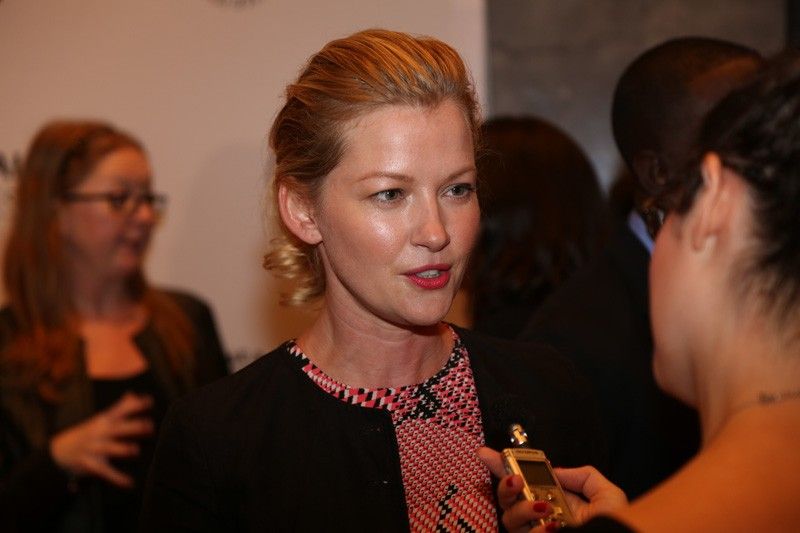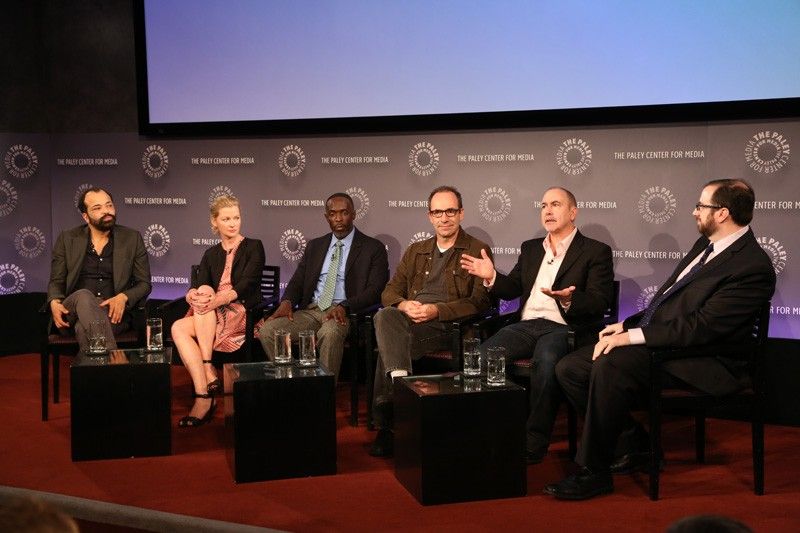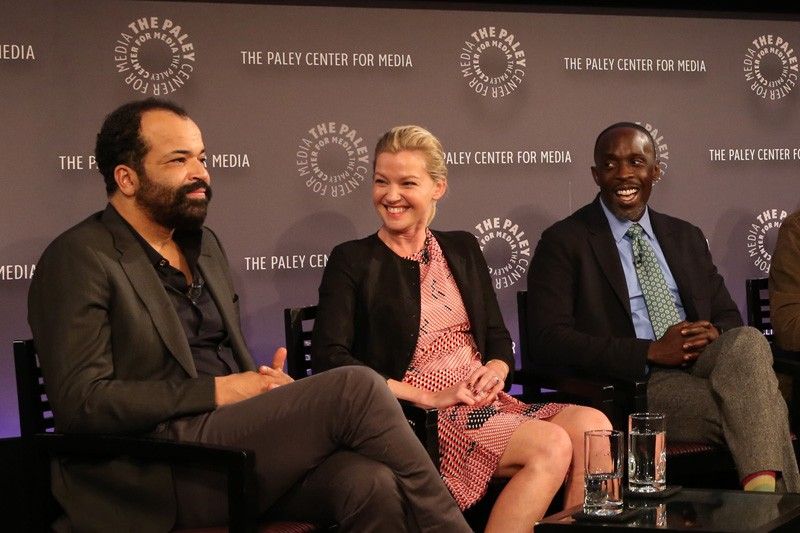Warning: This article contains spoilers for recent episodes of Boardwalk Empire.
Boardwalk Empire fans know a simple truth by now: Don't get too attached to anybody; death is never more than a sudden suicide away.
Eddie Kessler, played by Anthony Laciura, stands out as the most recent reminder of that, having jumped to his death in the fifth episode of the current season. Eddie's suicide shocked viewers, as he was Nucky Thompson's most loyal allies and one of the longest-running characters on the HBO drama. But that wasn’t enough to protect Eddie from the twists and turns of the tale.
"That was debated and discussed for months, up until the day we shot it," Boardwalk Empire creator Terence Winter said last week during the series’ PaleyFest panel in New York City. "We don't do those things lightly … [but] if it works for the show and it's organic, we'll do it. We don't shy away from things that will be hard or unpopular. If it works, we do it."
Eddie is the latest Boardwalk Empire character to meet a tragic end, but he's not likely to be the last. A strong contender for a similarly bitter demise is Gillian Darmody, played by Gretchen Mol. The show's veritable Lady Macbeth lost her son Jimmy at the end of Season 2 — although arguably earlier. The character's recently acquired heroin habit isn't doing her any favors, either.
"To me, this is the perfect love affair, for Gillian to find heroin," Mol said. "It releases her from all this stuff, from the whole trajectory of her life. … If there's anything that can make her open to a man who is on the straight and narrow and can promise this good, decent future, this is the time she'd be open to it. In her wildest dreams, she could never have gone there before."
Gillian represents the darkness of Boardwalk Empire better than most, but there's a new character in town who could very well push the envelope further: Dr. Valentin Narcisse, played by Jeffrey Wright. Loosely based on a historical figure named Casper Holstein, Narcisse arrives in Atlantic City with his eyes set on Chalky White (Michael Kenneth Williams) and his Onyx Club — and there's little he won't do to get what he wants.
"When you play baseball, there are certain pitchers you want to face,” Wright said. “I felt this whole season I was getting pitched to in my sweet spot, and I was swinging for it. The writing is what drives everybody here. Anything we're able to do is fueled by the imaginary powers of these guys."
"Chalky, he's a deer in headlights right now," Williams said about his character's run-ins with Narcisse. "Chalky's never dealt with a man of this caliber. He wears his heart on his sleeve; you don't have to worry about what he's thinking. That's the world he's dealt in … and then you meet Narcisse, who is conniving and manipulative. It's a new animal for him. He's unnerved about this new ground he's on."
Because the panel was running shorter on time than expected, moderator and TV critic Alan Sepinwall opened up the floor for questions from the audience. Winter and fellow writer and producer Howard Korder were asked how far ahead they've planed the story of Boardwalk Empire, from the very first episode to the most recent hour and beyond.
"For the most part, it's one season at a time," Winter replied. "Nucky's story dictates where the series goes. It's always about him at the center of it. Stories naturally start to tell you where they go and where they don't."
"We spend the first couple months of every season talking very generally and then more and more specifically of where we see the season going. We'd be lying if we said we don't go down blind alleys," Korder added. "It turns out that, to our surprise, we [find] that we've stuck to the arc and main events of what we talked about so many months ago, in a way that takes us by surprise. To me it's like saying 'Let's take a road trip to Los Angeles. We don't know what route we're taking but we know we'll wind up there.' The journey is the adventure, whether we went on the interstate or the tiny county roads. We end up arriving where we intended to go."
Another attendee asked how much the writers let history dictate the course of the show.
"It has to be organic to the story. We won't wedge historical figures in because they existed in that era," Korder said. "The real Nucky met every single famous person who came to Atlantic City. If you were famous and you came to Atlantic City, you met Nucky. He met Jack Dempsey, for example. Every big performer would pass through there. This year, as you've already seen, we met J. Edgar Hoover. That makes sense with our story because he's working with a federal agent. But we don't set out by saying, 'Who's famous?'"
Next, a fan stepped up to the microphone without a question, but with plenty of praise for the creators and actors onstage. "I need you to pay for my therapy," she demanded, yielding no response other than laughter.
The next question centered on the show's casting process — specifically, if actors other than Steve Buscemi were considered for the role of Nucky.
"James Gandolfini, actually, was one of the first people we talked about, not only because I'd worked with him, but because there's an incredible resemblance [to the real Nucky]," revealed Winter, a former writer and executive producer of The Sopranos. "But we knew that coming off Sopranos for so many years, he wouldn't want to do it anyway, and it was a good idea for a number of reasons."
After abandoning Gandolfini, Winter and fellow executive producer Martin Scorsese arrived at the idea of casting Buscemi. "A week went by, and I don't remember the other names that went around. Marty called me up and said, 'I can't stop thinking about Steve Buscemi,' and I agreed." The rest is history.
Finally, Winter was asked about the tone and cinematography of Boardwalk Empire, and what separates it aesthetically from other shows on television.
"The show has what we call a very classical style of cinematography and pace," he said. "Some people like and some people don't. That look of the show evolved in the pilot. I think it was, among other things, everything looked extremely rich, to echo the plushness and darkness of the world it's set in. We shoot on film and we're one of very few shows that still do that. We generally eschew handheld; it's really all classical filmmaking. It's meant to evoke the style of show we're trying to create, to give the show a look that makes it stand out from anything else on television."
Boardwalk Empire airs Sundays at 9 p.m. ET/PT on HBO.




